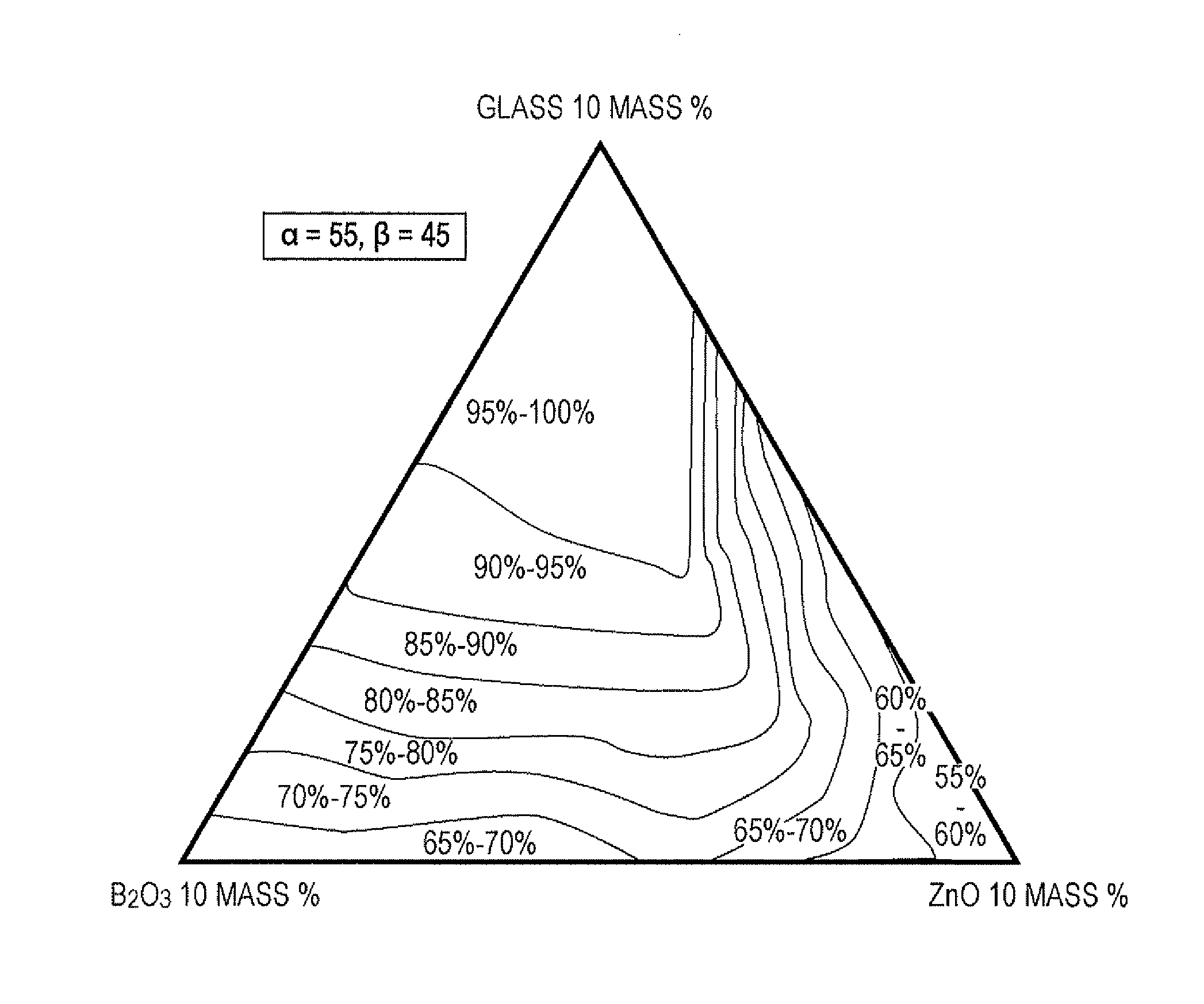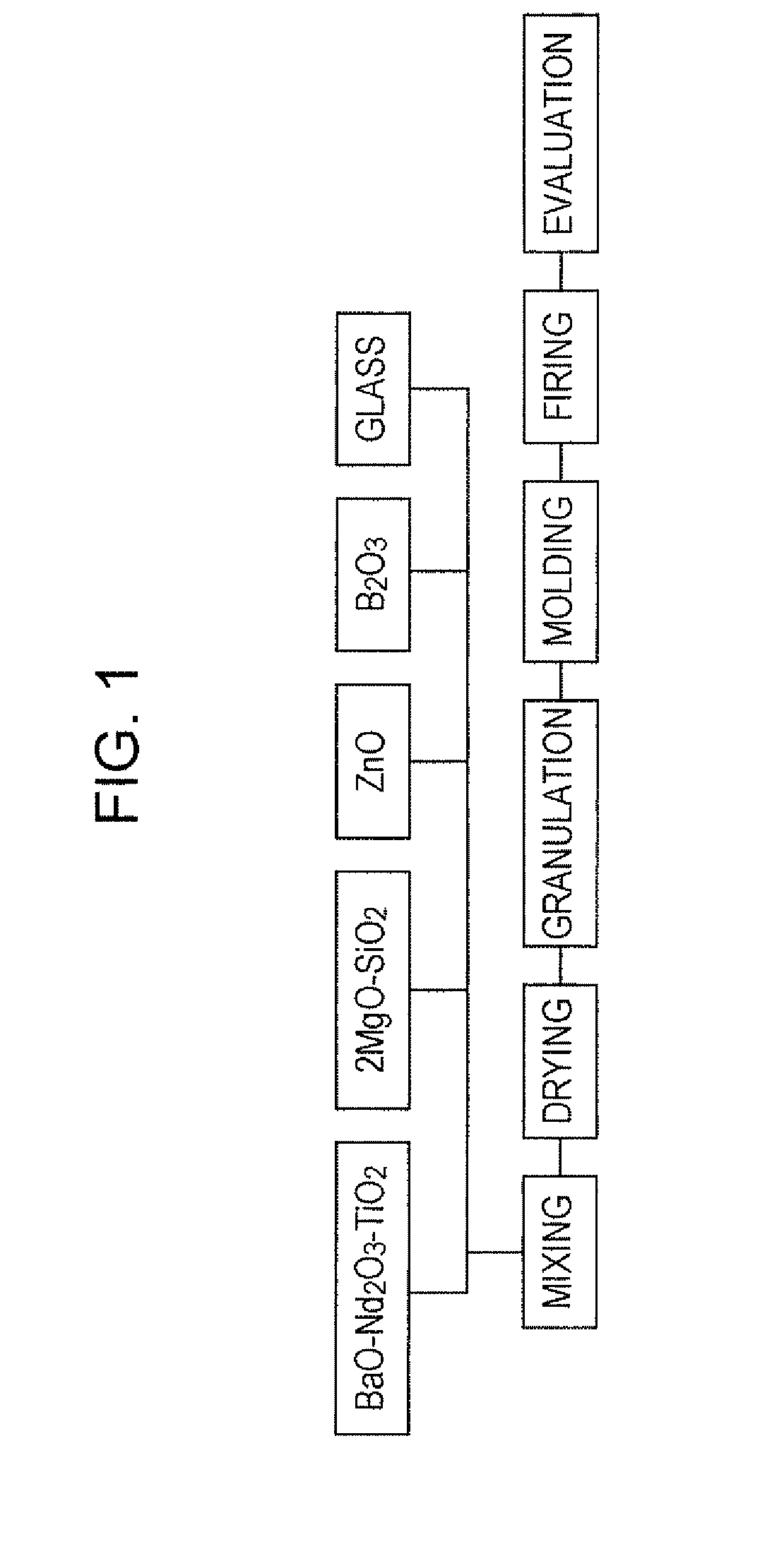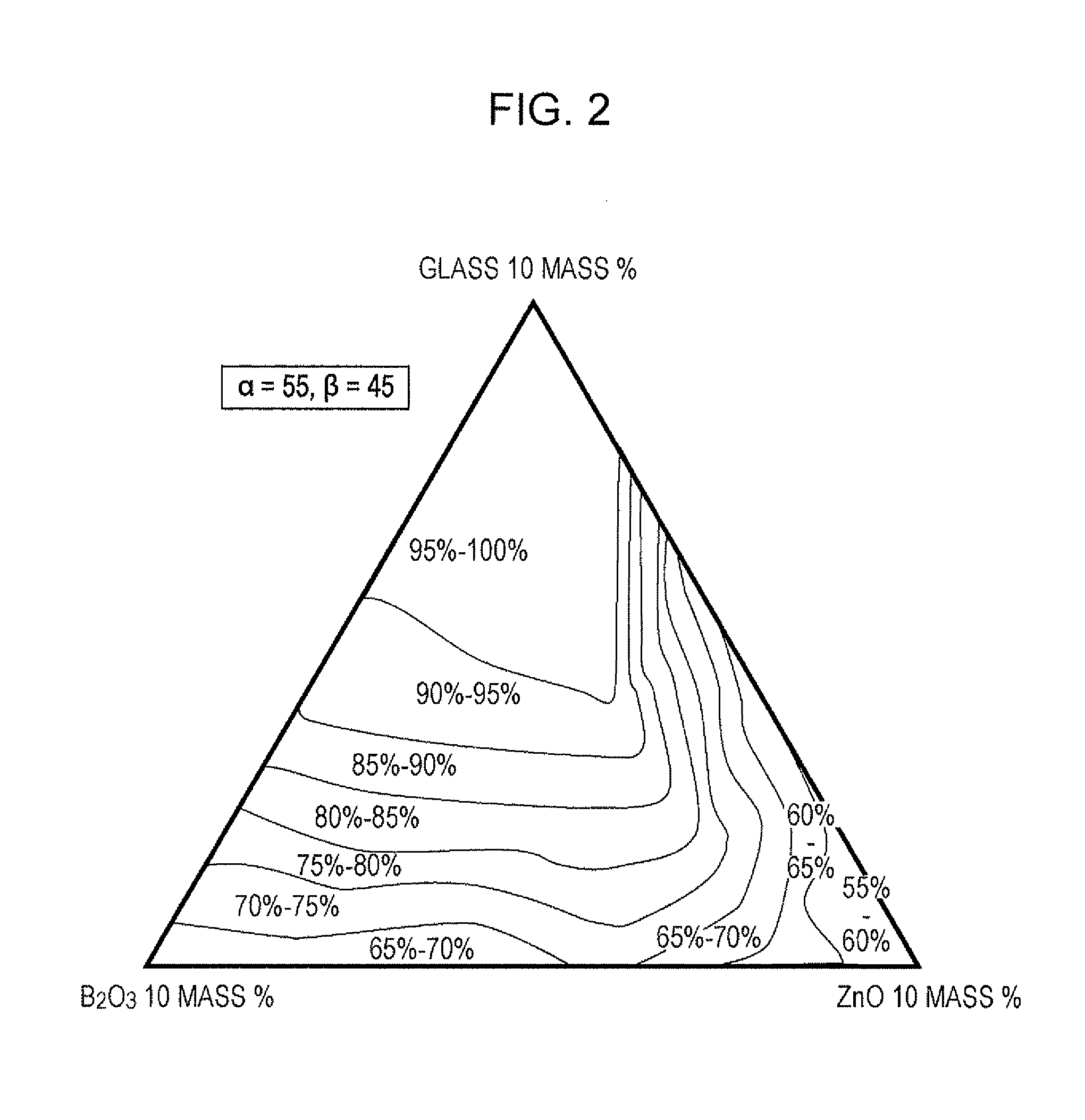Dielectric ceramic composition
a technology of dielectric ceramics and compositions, applied in the direction of capacitors, basic electric elements, fixed capacitors, etc., can solve the problems of unreacted zinc oxide, low density after sintering, and insufficient reaction of zinc oxide with other components, etc., to achieve high chemical resistance
- Summary
- Abstract
- Description
- Claims
- Application Information
AI Technical Summary
Benefits of technology
Problems solved by technology
Method used
Image
Examples
first embodiment
[0049]The dielectric ceramic composition of the present embodiment includes zinc oxide, boron oxide, and a glass having a softening point of 570° C. or less as minor components with respect to the main component (xBaO.yNd2O3.zTiO2-based compound and 2MgO.SiO2). When the minor components are respectively represented by aZnO, bB2O3, and cglass, a, b, and c that represent the mass ratios of the respective minor components to the main component satisfy 0.0 (mass %)≦a≦4.25 (mass %), 0.0 (mass %)≦b≦5.5 (mass %), 4.5 (mass %)≦c≦10.0 (mass %), b≧a−3, and a+b+c=10.
[0050]When the dielectric ceramic composition includes the above-described minor components, the sintering temperature of the dielectric ceramic composition decreases. Therefore, the dielectric ceramic composition and a Ag-based metal can be simultaneously fired at a temperature lower than the melting point of an internal conductor made of the Ag-based metal.
[0051]The content a (unit: mass %) of zinc oxide, which is one of the mino...
second embodiment
[0059]A sample is produced in the same manner as in the first embodiment except that the minor components are changed to be as follows.
[0060]Zinc oxide, boron oxide, and a glass having a softening point of 570° C. or less are included as the minor components. When the minor components are respectively represented by aZnO, bB2O3, and cglass, a, b, and c that represent the mass ratios of the respective minor components to the main component satisfy 0.0 (mass %)≦α≦4.75 (mass %), 1.0 (mass %)≦b≦6.5 (mass %), 3.5 (mass %)≦c≦5.0 (mass %), b≧a−3, and a+b+c=10.
[0061]The content a (unit; mass %) of zinc oxide, which is one of the minor components, the content a being a ZnO-equivalent mass ratio of zinc oxide relative to 100 mass % of the main component, is 0.5≦a≦4.75, preferably 0.0≦a≦4.25, and more preferably 0.5≦a≦3.5.
[0062]If a is more than 4.75, the low-temperature sintering effect (effect that enables the sintering of dielectric ceramic compositions at a lower temperature) tends to beco...
third embodiment
[0068]A sample is produced in the same manner as in the first embodiment except that the minor components are changed as follows.
[0069]Zinc oxide, boron oxide, and a glass having a softening point of 570° C. or less are included as the minor components. When the minor components are respectively represented by aZnO, bB2O3, and cglass, a, b, and c that represent the mass ratios of the respective minor components to the main component satisfy 0.0 (mass %)≦a≦4.25 (mass %), 1.0 (mass %)≦b≦5.5 (mass %), 4.5 (mass %)≦c≦5.0 (mass %), b≧a−3, and a+b+c=10.
[0070]The content a (unit: mass %) of zinc oxide, which is one of the minor components, the content a being a ZnO-equivalent mass ratio of zinc oxide relative to 100 mass % of the main component, is 0.0≦a≦4.25, preferably 0.0≦a≦4.0, and more preferably 0.5≦a≦3.5.
[0071]If a is more than 4.25, the low-temperature sintering effect (effect that enables the sintering of dielectric ceramic compositions at a lower temperature) tends to become insu...
PUM
| Property | Measurement | Unit |
|---|---|---|
| softening point | aaaaa | aaaaa |
| melting point | aaaaa | aaaaa |
| relative permittivity ∈r | aaaaa | aaaaa |
Abstract
Description
Claims
Application Information
 Login to View More
Login to View More - R&D
- Intellectual Property
- Life Sciences
- Materials
- Tech Scout
- Unparalleled Data Quality
- Higher Quality Content
- 60% Fewer Hallucinations
Browse by: Latest US Patents, China's latest patents, Technical Efficacy Thesaurus, Application Domain, Technology Topic, Popular Technical Reports.
© 2025 PatSnap. All rights reserved.Legal|Privacy policy|Modern Slavery Act Transparency Statement|Sitemap|About US| Contact US: help@patsnap.com



